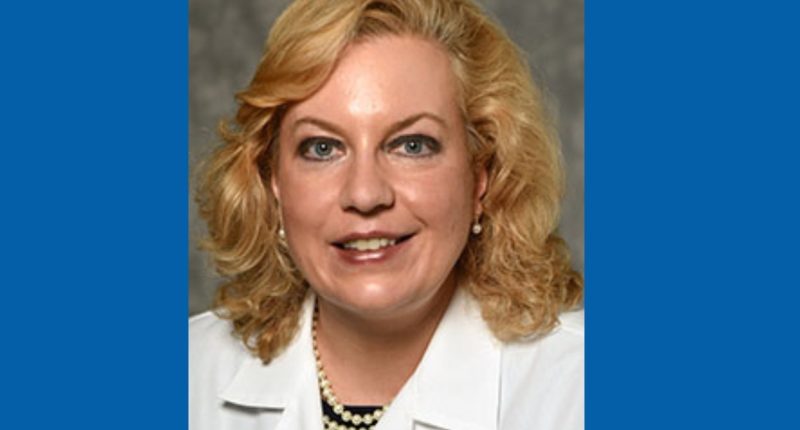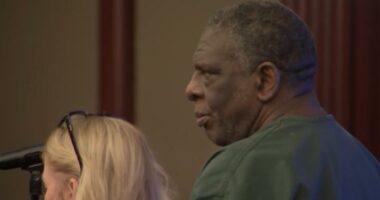Share this @internewscast.com

The report indicates that staff members working with Dr. Barbara Knox frequently resigned due to the unfavorable work atmosphere. One individual mentioned that employees were apprehensive about enduring a “living hell.”
JACKSONVILLE, Fla. — A recent internal investigation at the University of Florida uncovers allegations of mistreatment and improper behavior by child abuse pediatrician Dr. Barbara Knox, who was involved in the notable Sullivan case. The report highlights claims from staff of experiencing “a subtle form of harassment” and being in a workspace where they dreaded enduring “a ‘living hell.'”
The Sullivan family from Camden County, Georgia, lost custody of their three children for 18 months after Dr. Knox evaluated their baby and accused them of child abuse, despite their assertions that the injuries were due to a medical condition. Following a protracted struggle, they have successfully regained custody. (Further details on the Sullivan case can be found here.)
Knox served as the division chief of the UF Health Jacksonville Child Protective Team (CPT). After the Sullivan case made headlines, nine employees of Knox’s CPT team, spoke to First Coast News, coming forward about their experiences working with her. The employees told us they were suffering from working in a toxic environment.
Report says Knox violated policy
UF confirmed Thursday that Knox has announced her resignation, effective in August.
The report from UF, dated March 31, 2025, says that after conducting interviews with 20 witnesses, the investigator found that Knox violated provisions of UF Regulation 1.008 prohibiting disruptive behavior.
“Knox’s unsound approach to leadership, assessed objectively, created a hostile work environment in which CPT employees have suffered unreasonable interference to their ability to do their job, in some cases leaving their job altogether. In turn, CPT has been obstructed in its mission and its reputation in the community has been damaged – clear interference to UF functions and processes,” the report stated.
However, Knox has been allowed to continue working at UF. Her resignation is effective August 15 according to UF.
In response to a request for comment, a spokesperson for the University of Florida told First Coast News, “The University of Florida does not typically comment on personnel matters.” Knox did not respond to a request for a comment.
While a few employees noted to have positive relationships with Knox and described her as kind or as doing what she felt was necessary to lead, most of those interviewed said they felt that Knox caused high turnover and created a negative environment in the workplace.
‘No choice’: Report details employees’ reasons for turnover
One employee told the investigator she left the team because “the atmosphere in the workplace had become so bad.”
Another stated that she had to pull her car over “five or six” times because Knox was yelling at her on the phone. That employee said she eventually “couldn’t take it anymore” and felt she had “no choice but to resign.”
Another said she felt she had to leave the team “for the sake of her mental health,” after Knox took over.
The report says one employee “characterized the work atmosphere under Knox as ‘an insidious kind of harassment’ characterized by derogatory comments, aggressive directives, verbal abuse, sarcasm, insults, rumor spreading, unjustified criticism, isolating employees by moving their workspaces, exclusion, and unwarranted blaming.”
Another employee “stated that she and the other coordinators love the job and helping children, but they fear being retaliated against, fired, or having their jobs made ‘a living hell.'” The employee added, “The work is so hard already.”
“The environment is so toxic that it makes employees not want to be a part of anything, help anyone, or speak to anyone,” one employee told the investigator.
The findings in the report include that Knox repeatedly had employees do personal tasks for her, including taking her kids to and from school during work hours, reviewing her child’s college essays, and doing maintenance at her home. Employees also reported Knox paid them cash to work overtime, the report said.
Complaints in two other states
This was not the first time Knox has received complaints from employees.
Knox has come under scrutiny in two other states. In 2019 she was placed on paid administrative leave by the University of Wisconsin School of Medicine and Public Health according to a letter obtained by Wisconsin Watch.
The letter said, “This is to memorialize that effective June 28, 2019, the School of Medicine and Public Health (SMPH) placed you on administrative leave with pay from your Professor (CHS) position in the Department of Pediatrics. You are on leave because of concerns that arose about the timely completion of your work and your workplace behavior, including unprofessional acts that may constitute retaliation against and/or intimidation of internal and external colleagues. SMPH has commenced an investigation of these matters.”
A subsequent letter obtained by Wisconsin Watch said, “The reason she was placed on leave did not relate to dishonesty, clinical skills, medical diagnostic abilities, or incorrect medical diagnoses.”
In a statement to First Coast News, UW Health wrote that Dr. Knox “was a physician responsible for evaluating and treating patients for child abuse and resigned before an investigation was completed.”
Knox then worked in Alaska where former employees made numerous complaints about her management and medical judgment, according to Wisconsin Watch and Anchorage Daily News. She resigned from her position in Alaska in 2022 and joined the University of Florida that same year.
When employees learned of Knox’s past, particularly in Alaska, the UF investigative report says a superior told them they were not to bring it up at work. It says employees were told “if anyone says anything about Knox they will be fired on the spot.”
The report’s finding says: “Knox’s unsound approach to leadership, assessed objectively, created a hostile work environment in which CPT employees have suffered unreasonable interference to their ability to do their job, in some cases leaving all together.”
You can read our previous reporting, where we spoke with the nine employees, by clicking here.

















